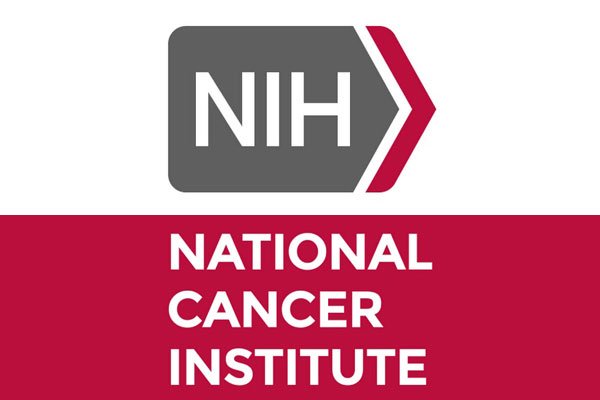What is a Clinical Trial?
A Clinical Trial is a research program conducted with patients to evaluate new medical treatments or drugs. The purpose of clinical trials for breast cancer is to find new and improved methods of diagnosing, treating, preventing, and screening for this disease.
What is a Clinical Trial?
A Clinical Trial is a research program conducted with patients to evaluate new medical treatments or drugs. The purpose of clinical trials for breast cancer is to find new and improved methods of diagnosing, treating, preventing, and screening for this disease.
What is a Clinical Trial?
What do these Drugs have in common?
What do these Drugs have in common?
These all had to be tested through clinical trials before their use was permitted
These all had to be tested through clinical trials before their use was permitted
These all had to be tested through clinical trials before their use was permitted
Treatment trials
Treatment trials, also called interventional trials, are clinical trials that test treatments in their pre-approval stage. Treatment trials are generally carried out in two sets of phases—the early phases determine whether or not new treatments are safe, and whether they have any side effects; the later Phases are aimed at finding out whether the new Treatment is more effective than the existing remedy.
Screening Trials
Screening trials are similar to diagnostic trials with a few key differences. Unlike diagnostic trials, which are carried out to check for the presence or absence of a medical condition for treatment purposes, screening trials check for early disease or risk factors for disease using a large number of healthy individuals.
Prevention Trials
As the name suggests, Prevention trials are aimed at testing if a particular medical condition can be prevented in individuals. If people already have the condition, then prevention trials test ways to stop them from reoccurring. Unlike treatment trials which often require test subjects with pre-existing conditions, volunteers for Prevention trials are usually healthy individuals of all ages and backgrounds.
Palliative Care (PC) Trials
Palliative Care improves the quality of life of patients and their families’ facing problems associated with life-threatening illness, through the prevention and relief of suffering by means of early identification, assessment, and treatment of pain and other physical, psychosocial, and spiritual issues.
Diagnostic Trials
Diagnostic trials aim to find efficient ways to detect and diagnose medical conditions. Diagnostic trials usually involve people who display symptoms of the medical condition being studied as well as those with no pre-existing conditions to establish positive and negative screening tests.
Natural History Trials
Applies mainly to rare diseases. This study collects information about the natural history (progression) of a disease in the absence of an intervention, from the disease’s onset until either its resolution or the individual’s death. Although knowledge of a disease’s natural history can benefit drug development for many disorders and conditions, natural history information is usually not available or is incomplete for most rare diseases; therefore, natural history information is particularly needed for these diseases.
Supportive Trials
Quality of life trials (or supportive care trials) explore and measure ways to improve the comfort and quality of life of people with conditions or illnesses.
Treatment trials
Treatment trials, also called interventional trials, are clinical trials that test treatments in their pre-approval stage. Treatment trials are generally carried out in two sets of phases—the early phases determine whether or not new treatments are safe, and whether they have any side effects; the later Phases are aimed at finding out whether the new Treatment is more effective than the existing remedy.
Screening Trials
Screening trials are similar to diagnostic trials with a few key differences. Unlike diagnostic trials, which are carried out to check for the presence or absence of a medical condition for treatment purposes, screening trials check for early disease or risk factors for disease using a large number of healthy individuals.
Prevention Trials
As the name suggests, Prevention trials are aimed at testing if a particular medical condition can be prevented in individuals. If people already have the condition, then prevention trials test ways to stop them from reoccurring. Unlike treatment trials which often require test subjects with pre-existing conditions, volunteers for Prevention trials are usually healthy individuals of all ages and backgrounds.
Palliative Care (PC) Trials
Palliative Care improves the quality of life of patients and their families’ facing problems associated with life-threatening illness, through the prevention and relief of suffering by means of early identification, assessment, and treatment of pain and other physical, psychosocial, and spiritual issues.
Diagnostic Trials
Diagnostic trials aim to find efficient ways to detect and diagnose medical conditions. Diagnostic trials usually involve people who display symptoms of the medical condition being studied as well as those with no pre-existing conditions to establish positive and negative screening tests.
Natural History Trials
Applies mainly to rare diseases. This study collects information about the natural history (progression) of a disease in the absence of an intervention, from the disease’s onset until either its resolution or the individual’s death. Although knowledge of a disease’s natural history can benefit drug development for many disorders and conditions, natural history information is usually not available or is incomplete for most rare diseases; therefore, natural history information is particularly needed for these diseases.
Supportive Trials
Quality of life trials (or supportive care trials) explore and measure ways to improve the comfort and quality of life of people with conditions or illnesses.
Clinical Trials Committees working Collaborative to change the Narrative!
Clinical Trials Committees working Collaborative to change the Narrative!
Clinical Trials Committees working Collaborative to change the Narrative!
NCI: National Cancer Institute
Ncorp: NCI Community Oncology Research Program (NCORP): (NCORP) is a national NCI-supported network that brings cancer clinical trials and cancer care delivery research studies to people in their communities. Y Research gram (NCORP)
UPenn: University of Pennsylvania
Rapcomp
NCI: National Cancer Institute
Ncorp: NCI Community Oncology Research Program (NCORP): (NCORP) is a national NCI-supported network that brings cancer clinical trials and cancer care delivery research studies to people in their communities. Y Research gram (NCORP)
UPenn: University of Pennsylvania
Rapcomp
Find more information about Cancer Clinical Trials
1-800-4 Cancer

National Cancer Institute
Comprehensive Cancer Information

National Cancer Institute
Comprehensive Cancer Information
- Phone:+1 (859) 254-6589
- Email:info@example.com

Massey Cancer Center
canClinical trials in Virginia

Massey Cancer Center
canClinical trials in Virginia
- Phone:+1 (859) 254-6589
- Email:info@example.com

Clara Health
Live 24/7 Guidance

Clara Health
Live 24/7 Guidance
- Phone:+1 (859) 254-6589
- Email:info@example.com

